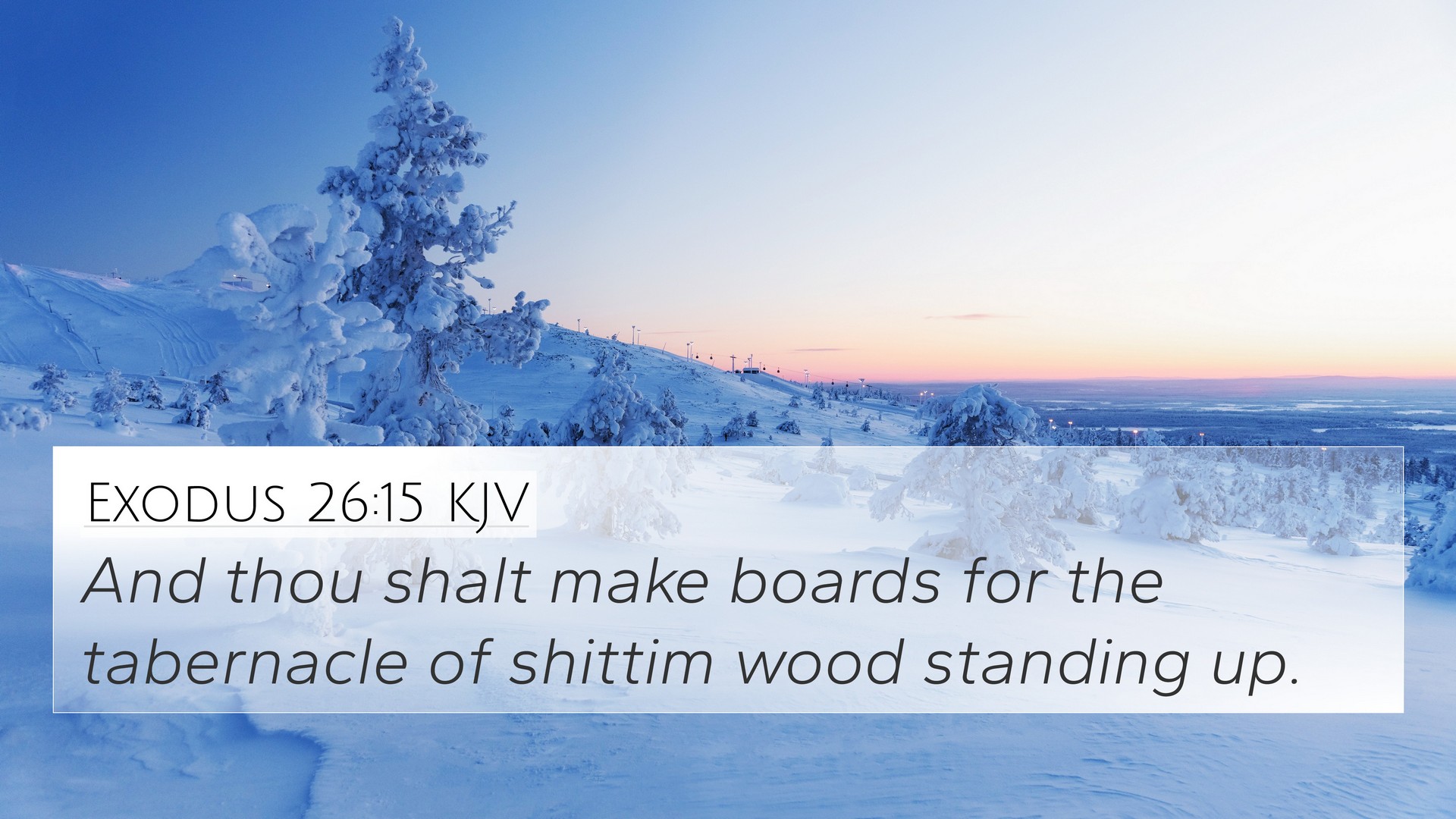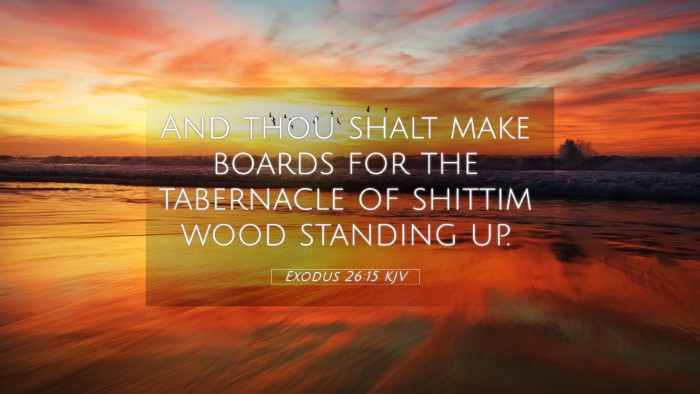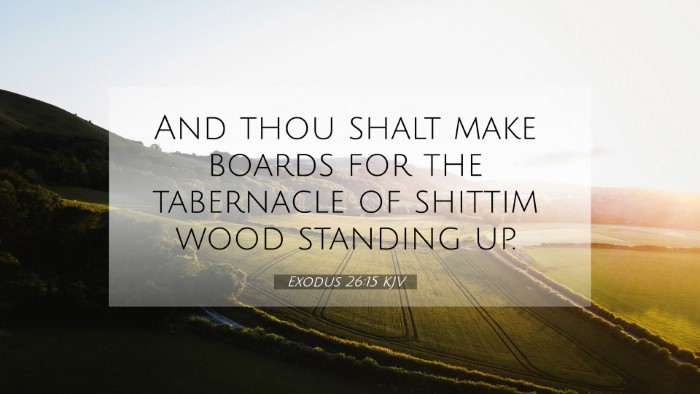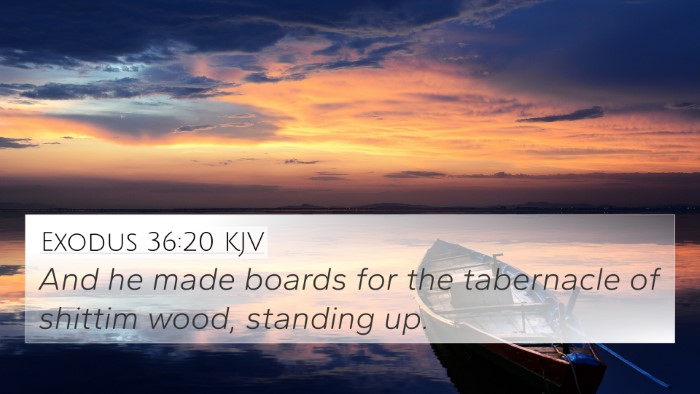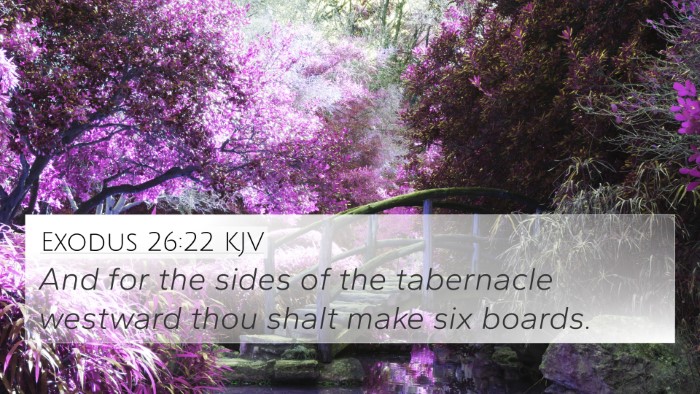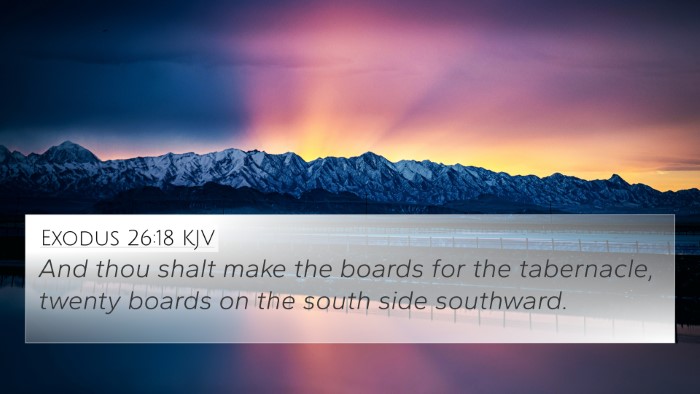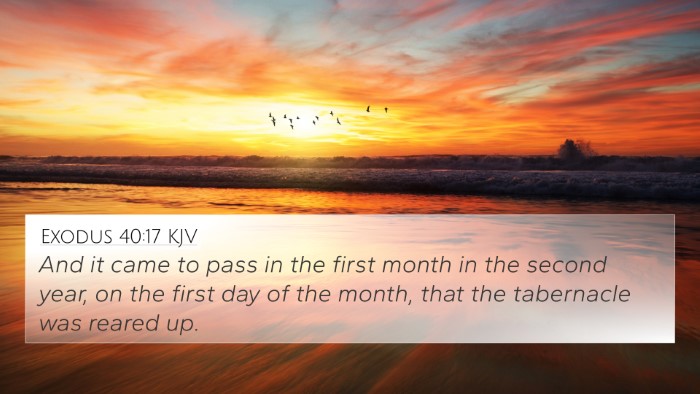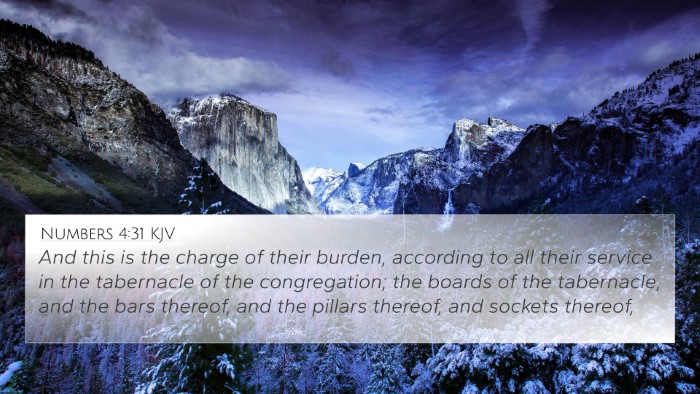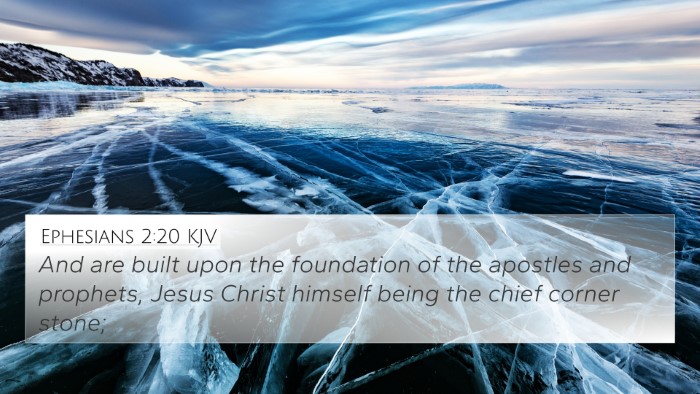Understanding Exodus 26:15
Exodus 26:15 states: "And you shall make the boards for the tabernacle of acacia wood, standing upright." This passage signifies crucial elements of the structure of the tabernacle that served as the dwelling place of God among His people.
Verse Context and Significance
The mention of the boards made of acacia wood in Exodus 26:15 connects deeply with the symbolism of strength and durability, representing God's everlasting presence and covenant with His people.
Commentary Insights
-
Matthew Henry emphasizes that the acacia wood reflects both the strength of the wood and the spiritual stature of the tabernacle. He notes that the upright position of the boards symbolizes the uprightness that believers are called to maintain in their lives.
-
Albert Barnes provides insight into the materials used, explaining that acacia wood is known for its resistance to decay, symbolizing the eternal nature of God's presence. He draws parallels to the spiritual integrity required by God's people.
-
Adam Clarke notes the architectural significance, calling attention to the precise instructions given for the construction of the tabernacle. He believes this specificity highlights the importance of obedience and the sacredness of worship.
Thematic Connections
This verse establishes a framework for understanding the tabernacle as a place where God meets His people. Here are key themes that connect Exodus 26:15 to other scriptures:
- Divine Instruction: The meticulous details signify God's desire for order and sanctity in worship (cf. Exodus 25:40).
- God's Dwelling Place: The tabernacle represents God dwelling among His people (cf. Leviticus 26:11-12).
- Symbolism of Wood: The use of acacia wood symbolizes strength and longevity, reflecting God's eternal nature (cf. Psalm 92:12).
- The Importance of Community: The construction of the tabernacle involved collective effort, signifying unity in worship (cf. Exodus 35:4-9).
- Holiness of God: The specifications showcase the holiness required to approach God (cf. Hebrews 9:1-12).
- Anticipation of Christ: The tabernacle is a foreshadowing of Jesus Christ, our true meeting place with God (cf. John 1:14).
- Blueprints of Worship: The tabernacle serves as a model for understanding proper worship practices (cf. Hebrews 10:19-22).
- Restoration and Access: God's desire to restore access to Him is echoed throughout scripture (cf. Revelation 21:3).
Cross References
Below are 10 key Bible verses that relate to Exodus 26:15, illustrating the rich tapestry of scriptural connections:
- Exodus 25:40 - Instruction for the construction.
- Leviticus 26:11-12 - God's promise to dwell among His people.
- Psalm 92:12 - Prosperity of the righteous, likened to trees.
- Exodus 35:4-9 - Collective resource contribution for the tabernacle.
- Hebrews 9:1-12 - The tabernacle's significance in relation to Christ's sacrifice.
- John 1:14 - The Word became flesh and dwelt among us.
- Hebrews 10:19-22 - New access to God through Jesus.
- Revelation 21:3 - The ultimate dwelling place of God with humanity.
- 1 Peter 2:5 - Believers as living stones in God’s spiritual house.
- Colossians 2:17 - Shadows of things to come; the tabernacle as a type.
Conclusion
The study of Exodus 26:15 through cross-referencing allows believers to deepen their understanding of worship, God's holiness, and the anticipation of Christ's involvement in our spiritual lives. This meticulous design of the tabernacle serves as a reminder of God's desire for a relationship characterized by order, reverence, and divine presence among His people.
